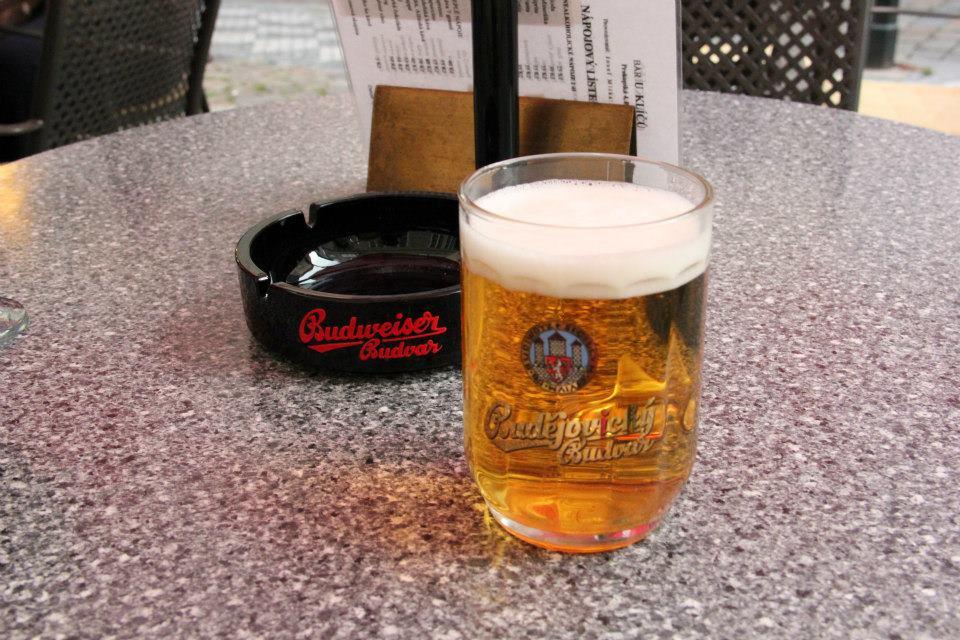Dear faithful friends, and fellow drinkers: the prohibition in Prague, which banned the sale of liquor over 20 percent, is on its way out. Slowly we’re beginning to see shelves restocked with whiskey, vodka, rum, etc… you get the drill. It’s safe to take shots, is what I’m trying to say. Or nurse a glass of whiskey, if that’s more your speed.
Unfortunately, as word was spreading through Prague that the prohibition had ended, there was a pesky virus infecting my liver by the name of Mononucleosis. I’ve recovered a bit since then (apologies for the infrequent posts, I was busy nursing myself back to health and watching all of Downton Abbey in one go), but the doctors tell me I won’t be able to consume alcohol for another couple weeks at least. And, for the most part, I’ve been heeding their advice.
But when I wasn’t listening to them … I tried Budweiser Budvar.

The name sounds familiar because it’s essentially the father of the Budweiser we know and reluctantly love in the states. The same name, but apparently a different beer and a different company.
I’ve been looking forward to trying it since I arrived in Prague. I expected to be blown away by how superior the Czech Republic’s Budweiser was to the Anheuser-Busch version. And then I could say snotty things at parties like, “Oh, it just isn’t the same as in the Czech Republic … ” Just like anyone I’ve every known who tried Guinness in Ireland.
I was also interested in the history of the beer. It’s about as turbulent as the history of the Czech Republic. It begins in the 13th century with the founding of the village of České Budějovice, which was chartered specifically for brewing rights. The brewery itself — originally called the Czech Share Brewery — was established in 1895. At that time it was part of the Austrian-Hungarian Empire.
Here’s where it gets confusing. The brewery would go on to change hands several times in the next century along with the ruling power in České Budějovice. In 1912 Czechloslovokia declared its independence, but its population was heavily Germanic, and largely German-speaking. This is how the name Budweiser originated — “Budweiser” being the German translation of “Budějovice,” which is Czech. The brewery was operated by the Nazis during WWII with the occupation of Czechoslovakia, and operated by the state while Czechoslovakia was under Communist control. It has only recently been privatized.
Hearing the history of a nation told in the context of just one brewery makes a person realize what’s important. That’s when you say “to hell with mono,” and order a pint.
Well then … what does it taste like? Hate to disappoint, but it tastes just like the cans of stuff I used to steal from grandpa’s cooler back home. With a mess of quality pilsners at my disposal, I don’t think I’ll be ordering Budweiser Budvar a second time. Mono or not. But it was nice for a moment of nostalgia. And for a few Slim Shady jokes.







